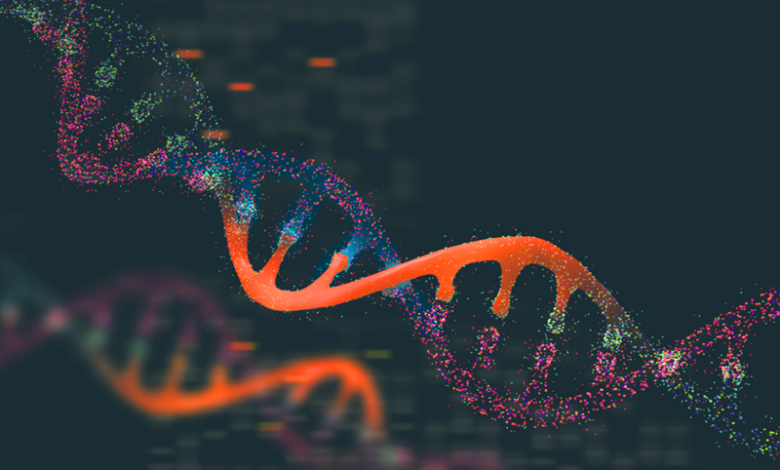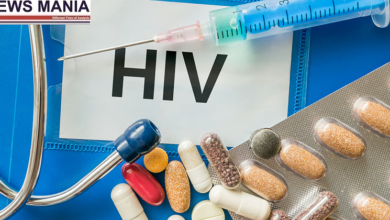What is the Genome India initiative, and why is it significant?
News Mania Desk / Piyal Chatterjee / 12th January 2025

Genome India initiative: The Department of Biotechnology has recently unveiled its new platform and framework for disseminating its dataset of 10,000 human genomes. The genetic sequences from healthy individuals across 99 ethnic groups in the country have assisted in establishing a baseline map of India’s genetic diversity. In the second phase, the researchers intend to sequence the genomes of individuals with particular diseases.
The human genome serves as an instructional guide we receive from our parents that determines how our body grows and operates. This genetic data influences all aspects, including an individual’s height, hair and eye color, as well as the health conditions they might inherit or be predisposed to. It is a book composed of only four letters: A, C, G, and T — the four bases that combine to form the distinct genetic identity of each individual. The entire human genome contains approximately 3 billion base pairs.
To sequence the genome, scientists initially obtain the data from the blood. Managing the complete genome, on the other hand, is exceptionally challenging. Thus, the researchers divided it into smaller segments and labeled them. A sequencer is subsequently employed to interpret these smaller segments of the genetic material. When finished, it is assembled with the tags to form a complete genome — similar to how one might put together Ikea furniture by following the instructions.
India is a nation that is diverse not just in geography, languages spoken, food, and culture, but also in its genetic composition. More than 4,600 unique populations exist. The Genome India initiative received approval in 2020 to capture this diversity on a genomic scale. Scientists from 20 diverse research institutions have collaborated to sequence the initial 10,000 genomes for the project. With all elements established — a fruitful partnership, a data storage facility, a data sharing system, and a framework — the biotechnology department plans to enhance the program and sequence as many as 1 million genomes.
Firstly, this map may assist in pinpointing genetic foundations or risk factors linked to different diseases. These can subsequently serve as goals for creating treatments and diagnostic assessments. Recent treatments for various illnesses function by altering, removing, or introducing specific genes — an endeavor that would be unfeasible without a genetic map and knowledge of which genes contribute to the disease.
Secondly, an Indian dataset aids in recognizing new variants. The researchers have discovered 135 million genetic variations in the 10,000 genomes analyzed to date, with 7 million of these not present in global databases. Additionally, population-level sequencing can inform scientists and clinicians about the frequency of specific genetic variations known to cause disease, indicating how prevalent a disease may be. For instance, the MYBPC3 mutation associated with early cardiac arrest is present in 4.5% of the Indian population but is uncommon worldwide. Alternatively, another mutation known as LAMB3, linked to a fatal skin disorder, is present in almost 4% of the residents near Madurai, yet it is absent in worldwide databases. This is why India needs its own genome dataset.
Additionally, it might aid in recognizing uncommon diseases and creating gene therapies for their treatment. Five, it may also aid in recognizing resistance-related variants, such as genes that could render some medications or anesthetics ineffective in specific groups. One instance from India involves a group within the Vaishya community in South India that lacks the gene needed to effectively metabolize standard anesthetics. The administration of these anaesthetics may lead to them staying unconscious for hours or potentially result in death.
The project’s second phase would consist of sequencing the genomes of individuals with particular diseases. This will allow researchers to compare diseased genomes with healthy ones, assisting in identifying genes that are responsible for or predispose individuals to specific diseases. They might have the capability to examine the genetic alterations when an individual develops a disease, such as cancer.
The team is presently engaging with specialists to determine the diseases that need genome sequencing and the number of genomes necessary for each disease to yield significant outcomes.
The illnesses that are most likely to be featured in the list would encompass various types of cancers, chronic ailments like diabetes, and several neurological or neurodegenerative disorders. Uncommon diseases present in Indian populations are expected to be part of the diseases list for research in the upcoming phase of the Genome India project.
Currently, Indian researchers will have access to the data through controlled means. “This marks the first occasion we have developed a resource like this, and we must exercise great caution in distributing this extremely sensitive information.” “The data will be accessible solely via managed access — indicating that it will be provided exclusively to research institutions collaborating with us for the study,” stated Dr. Suchita Ninawe, senior scientist from the biotechnology department.
To ensure the data’s anonymity, it would also be subjected to double blinding. “Once the samples from various regions are gathered and sequenced by one of the partner institutes, they will be encoded prior to uploading to the central database.” When the information is disseminated to those who want to analyze it, it will be encoded again. “This is to make sure that anonymity cannot be compromised,” stated Dr. Ninawe.
The initial Human Genome Project — an international collaboration supported by the US National Institutes of Health, among other entities — released the first entire human genome in 2003. Since that time, the 1,000 genome project — once more via global cooperation — released 1,092 sequences in 2012. By 2018, a project by the UK government had sequenced 100,000 genomes. A European initiative has also been launched to sequence over 1 Million Genomes from 24 nations.






